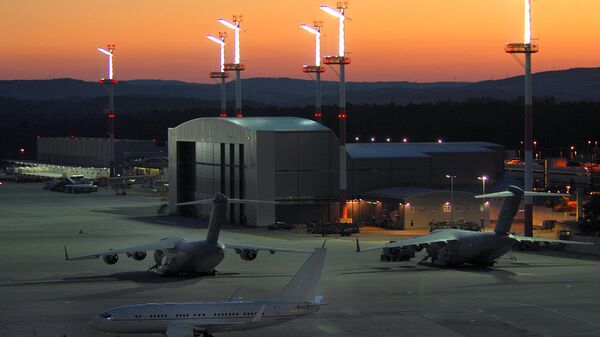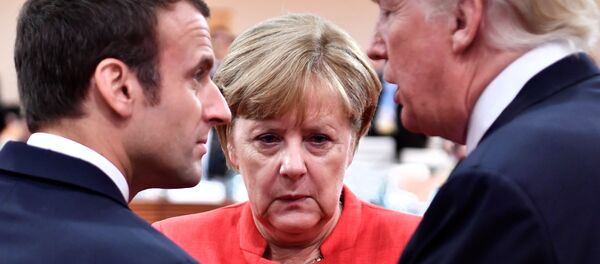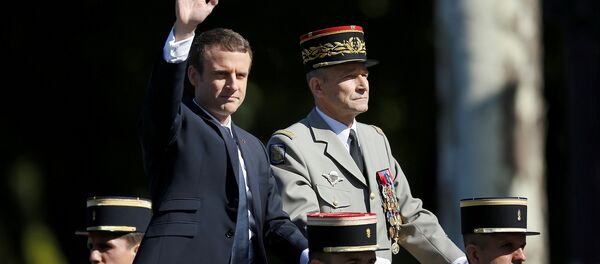Sputnik: What do you expect President Trump to ask from the Europeans during the NATO summit?
Michael O'Hanlon: Much of the focus will continue to be is this goal of greater military burden-sharing, as represented specifically in the goal of spending 2% of gross domestic product on the armed forces. That's an official NATO target for every country, and has been officially endorsed, yet only about five countries meet that standard right now. That's really been a big focus for President Trump, even when he was a candidate on the campaign trail back in 2016.
Sputnik: Why has this issue come up now? Why haven't previous presidents gone on record and really been hard on European countries, like Germany for example, which haven't been 'paying their way'? Why is it that only President Trump has really been pushing this agenda?
Michael O'Hanlon: Donald Trump came to the White House on a platform of trying to stand up for the American middle class, which he saw as not being well served by a number of our alliance relationships or our trade agreements around the world. [The] sense of economic misfortune and lack of hope for many people in this group and military burden-sharing was one aspect of that. Trump's whole existence as a politician is partly about these kinds of issues.
Secondly, I think that we've seen, since 2014, much greater tension between NATO and Russia, to the point where there is a sense that these issues matter more than they did previously; in the sense that there really is a heightened fear that there is a possibility of conflict, especially in Eastern and Central Europe; that in order to avoid that, and to reinforce deterrence, that NATO members as a whole really need to come together and do better.
Finally, even though I think you're right that President Trump has certainly amplified this issue and heightened it, other presidents have talked about it too, [as have] other secretaries of defense. They just kept it in a more classic diplomatic style and tone, and tried not to give the impression that NATO was coming apart internally because of this issue. I don't think it is coming apart, but other presidents have been more careful to avoid anything that might give that impression.
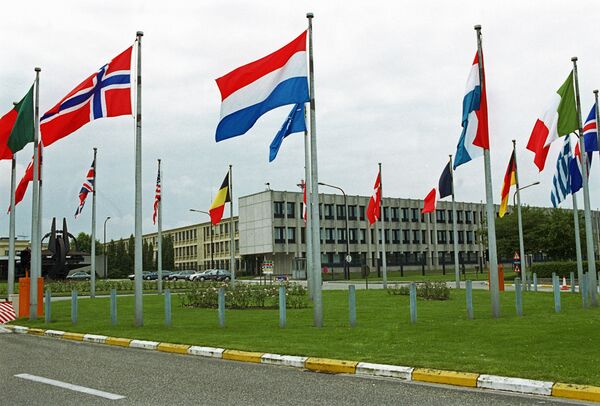
Sputnik: Do you think that the European Union leaders are feeling more pressure from the American president?
Michael O'Hanlon: There's a lot on the plate, and a number of us in the United States who are sympathetic to President Trump's pressure on the allies for greater military burden-sharing think he's nonetheless made a mistake on trade. Because we don't see the evidence that trade policy is somehow unfair, or that the trade relationship with Europe is somehow unfair.
We can have a good debate about whether he's right or wrong, but he's obviously asking a lot…Therefore, one wonders why he piles on an unnecessary issue like trade, where he's really not in a strong position and where his complaints are not quite as convincing.
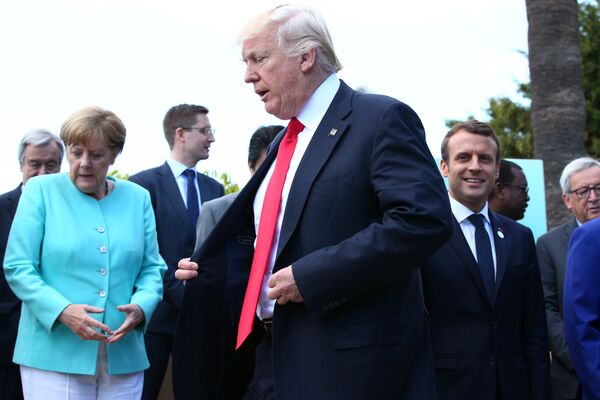
Sputnik: Some experts have warned that President Trump may disrupt this NATO summit and freeze US military operations or withdraw troops. Do you think this is a likely scenario?
The bases we in Germany do us a lot more good for our entire global posture than President Trump seems to fully appreciate. So on that issue I think he's not wise to make too much of it, and he would not have many other American strategists on his side if he were to somehow try to withdraw the relatively modest number of US troops still left in Germany at this point. We've already reduced them by 90% since the Cold War, and the number that remains serves some purposes that most people are pretty strongly aligned with. I hope he doesn't really push that issue. I see that more as 'Donald Trump the dealmaker, the expert in brinksmanship, the tough negotiator,' rather than being serious about this proposal; but we'll have to see.
Michael O'Hanlon is a senior fellow at the Brookings Institution and the director of the institute's Research of Foreign Policy Program. In late 2002 and early 2003, the analyst became a prominent proponent of the US invasion of Iraq. During the Obama presidency, O'Hanlon supported Washington's troop surge in Afghanistan. The views expressed by Dr. O'Hanlon are those of the speaker, and do not necessarily reflect those of Sputnik.
